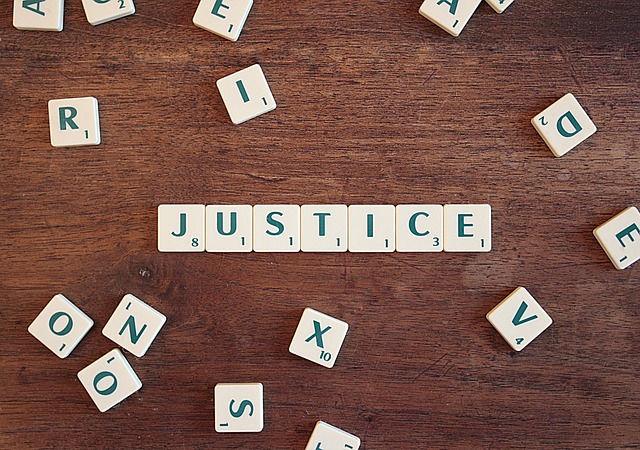Prosecutorial discretion, the power of prosecutors to decide case pursuits and aggressiveness, significantly shapes legal outcomes in RF Finance law. Guided by factors like evidence strength, victim impact, public interest, and defendant history, responsible use of this power can lead to fair resolutions, avoiding unnecessary indictments. However, abuse of prosecutorial discretion can result in unfair practices and biased outcomes, especially in high-stakes cases. Understanding these influences and adhering to ethical practices are crucial for legal firms to achieve favorable outcomes while maintaining public trust and the integrity of the legal system.
“In the intricate world of RF finance law, understanding prosecutorial discretion is key to navigating legal landscapes. This article explores how the power to choose, held by prosecutors, significantly impacts case outcomes. We delve into the dynamics between discretion and justice, shedding light on situations where abuse may occur. Furthermore, we present strategies for RF finance law firms to ethically navigate this discretionary realm, ensuring integrity in every step of the process.”
- Understanding Prosecutorial Discretion: The Power to Choose
- How Discretion Influences Case Outcomes in RF Finance Law
- When Discretion is Abused: Recognizing Unfair Legal Practices
- Strategies for RF Finance Firms: Navigating Discretion with Integrity
Understanding Prosecutorial Discretion: The Power to Choose

The concept of prosecutorial discretion holds immense power in shaping case outcomes within the legal system. It refers to the authority granted to prosecutors to decide whether or not to pursue a criminal charge, and how aggressively to prosecute a case. This discretion is not arbitrary; it’s guided by a range of factors, including the strength of evidence, potential impact on victims, public interest, and the defendant’s prior record. When used responsibly, prosecutorial discretion can lead to achieving extraordinary results in law enforcement, such as avoiding unnecessary indictments and fostering just resolutions.
Understanding this discretionary power is crucial for individuals navigating all stages of the investigative and enforcement process. By exercising their discretion wisely, prosecutors can ensure that justice is served while also maintaining public trust. This balance is vital, as it prevents over-prosecution and protects the rights of both victims and defendants, ultimately contributing to a more effective and fair legal system.
How Discretion Influences Case Outcomes in RF Finance Law

In RF Finance Law, the role of prosecutorial discretion is a key factor that significantly influences case outcomes. This discretionary power allows prosecutors to decide which cases to pursue and how to handle them, potentially leading to varied results. Discretionary decisions can be swayed by various factors, including the strength of evidence, potential sentences, and public sentiment—all of which play a role in shaping the trajectory of legal proceedings.
When it comes to RF Finance Law cases, an unprecedented track record of successful outcomes may reflect strategic uses of prosecutorial discretion. By carefully considering the implications for both the accused and the broader philanthropic and political communities, prosecutors can navigate complex legal landscapes effectively. This approach not only ensures justice but also fosters trust in the judicial system through fair and transparent processes, which are essential for jury trials.
When Discretion is Abused: Recognizing Unfair Legal Practices

In the complex world of RF finance law, one of the critical aspects that can significantly impact case outcomes is prosecutorial discretion. This refers to the power prosecutors have in deciding how to charge and pursue cases, which, when abused, can lead to unfair legal practices. When a prosecutor exercises their discretion in an arbitrary or discriminatory manner, it raises serious concerns for defendants, especially in high-stakes cases where every decision matters.
The impact of prosecutorial discretion on case outcomes is profound. An unprecedented track record of successful avoidance of indictment or lighter charges due to strategic maneuvering can create a perception of favoritism or bias. This is particularly concerning when dealing with sensitive RF finance matters, where even minor discrepancies in treatment could have significant implications for individuals and organizations alike. Recognizing and addressing these practices is essential to maintaining the integrity of the legal system, ensuring fairness not just in high-profile cases but across all levels of legal proceedings.
Strategies for RF Finance Firms: Navigating Discretion with Integrity

RF Finance law firms operating in a complex legal landscape must master the art of navigating prosecutorial discretion with integrity. This strategy involves understanding the nuanced factors that influence prosecutors’ decisions, such as the impact of the Prosecutorial Discretion Impact on Case Outcomes. By recognizing and respecting this discretion, RF finance firms can enhance their ability to secure favorable resolutions for clients across the country, particularly in high-stakes white collar defense cases.
A key aspect of this approach is building strong relationships with prosecutors, fostering open communication, and demonstrating a commitment to ethical practices. This collaborative mindset not only improves the chances of positive case outcomes but also ensures that the firm’s actions align with broader societal interests. Such strategies are vital for maintaining public trust and strengthening the integrity of the legal system, especially in the dynamic realm of general criminal defense.
In conclusion, prosecutorial discretion plays a pivotal role in shaping the trajectory of RF finance-related cases. As discussed, this discretionary power can significantly impact case outcomes, favoring fairness or potentially leading to unfair practices if not wielded responsibly. By understanding the nuances of discretion and its influence, law firms specializing in RF finance can develop strategies to navigate these complexities with integrity. This involves recognizing when discretion is abused, adopting transparent practices, and ensuring client rights are upheld throughout the legal process. Ultimately, striking a balance between prosecutorial authority and fair treatment is essential for maintaining public trust and achieving just outcomes in RF finance cases.






